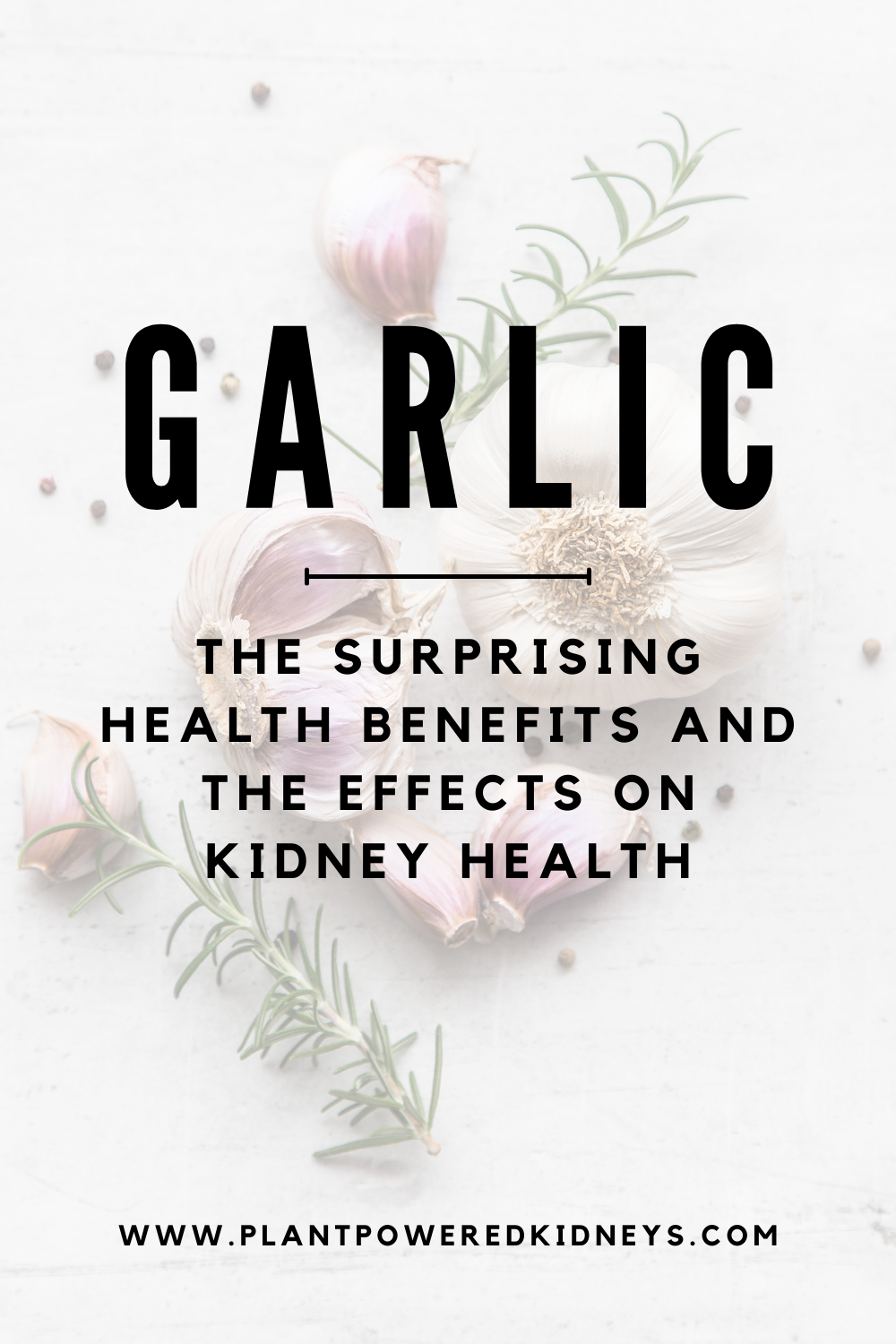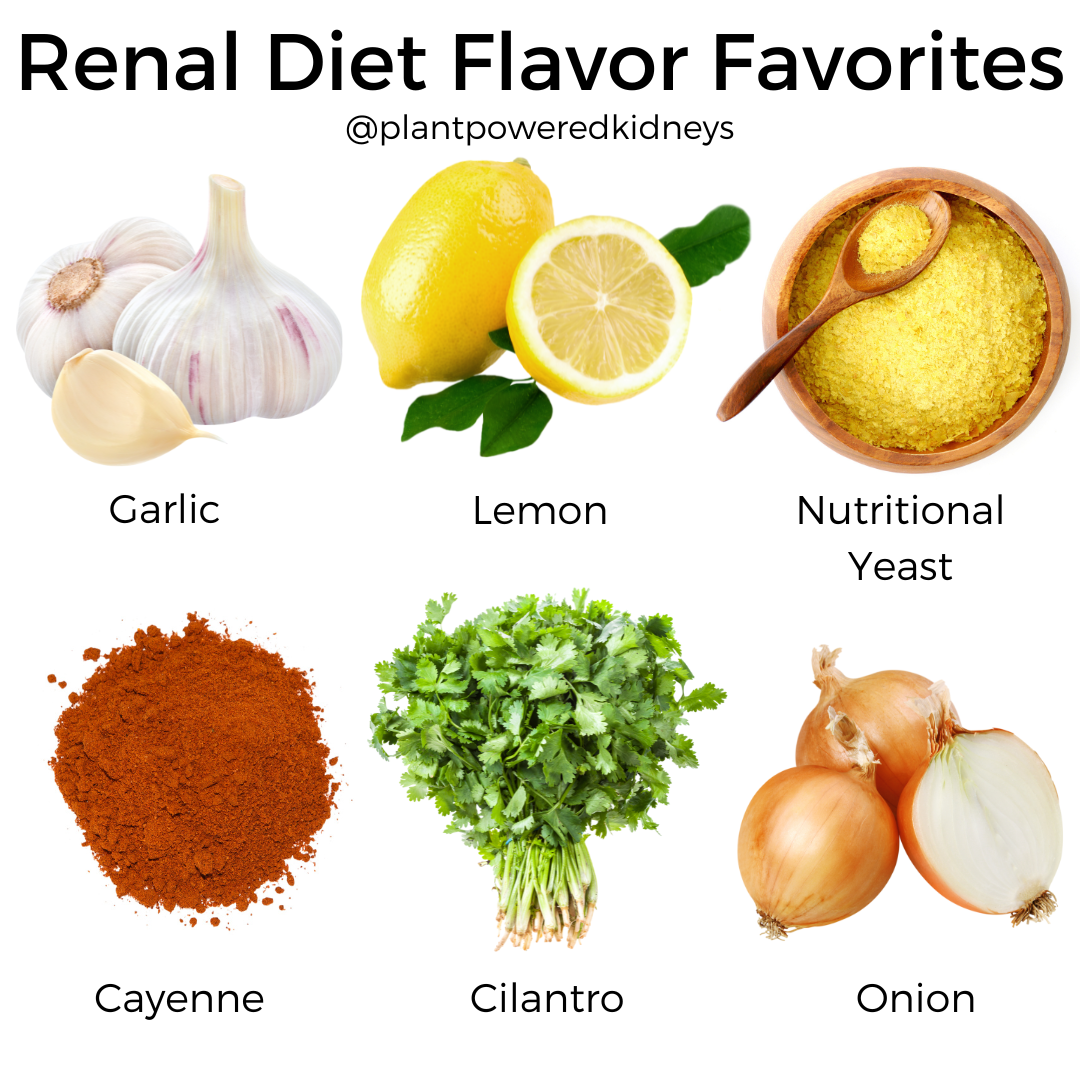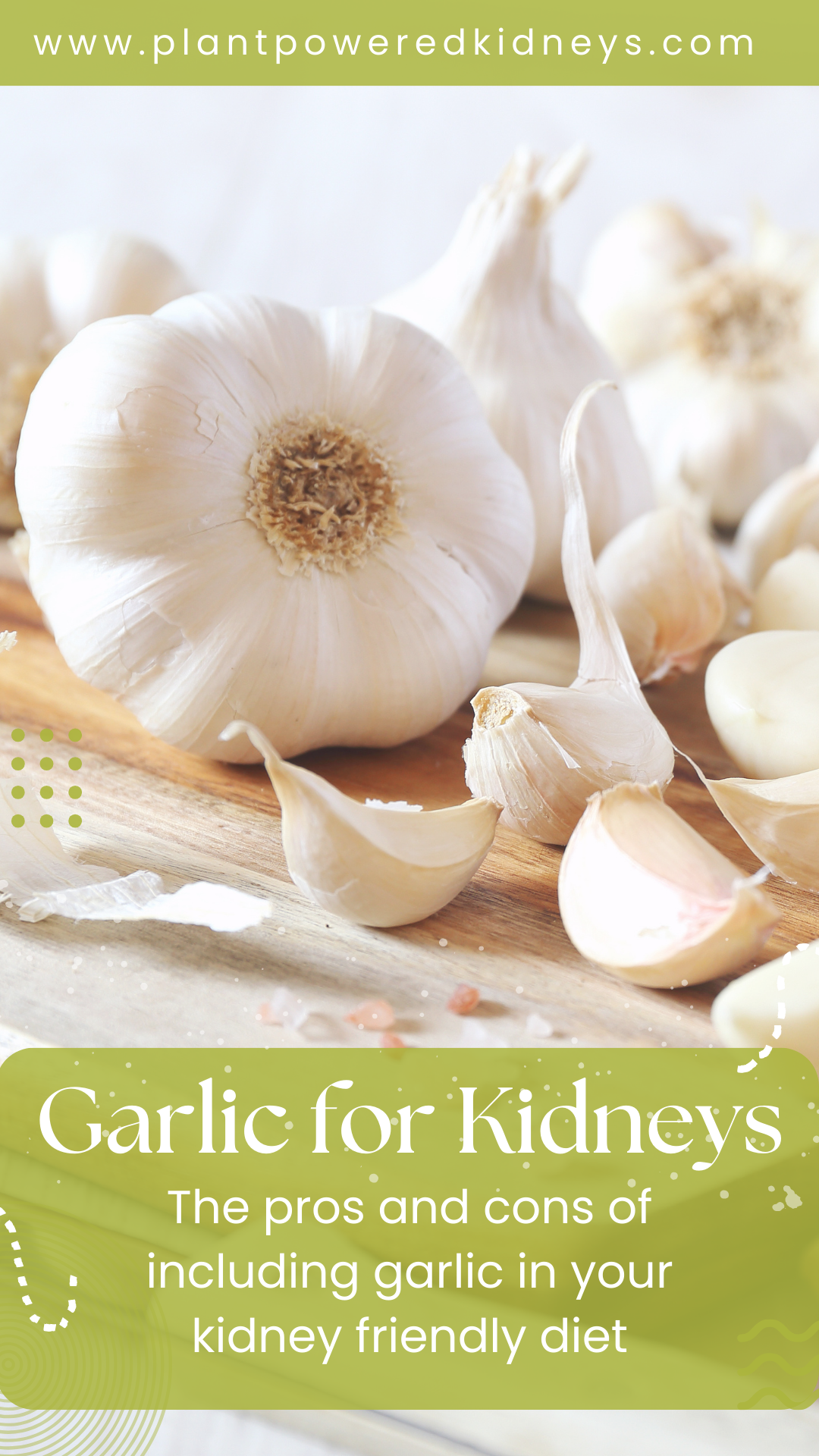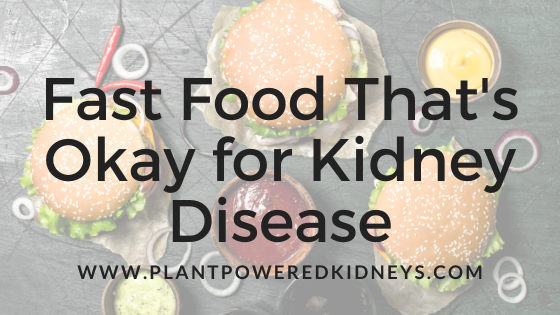From common household spice to ancient medicine, garlic has been used by humans in many forms for centuries. We know that many herbs and spices have beneficial effects on our health, but is garlic part of that list? Is garlic delicious and good for our health? Furthermore, is garlic good for kidneys? This article will cover the nutritional value of garlic, proven health benefits, potential health benefits, risks of garlic and garlic supplements, and how to use garlic in a kidney diet.
Table of Contents
The History of Garlic
Garlic has been used in cooking and medicine for centuries.
It is estimated that Egyptian and Indian cultures used garlic for cooking and medicine up to 5000 years ago.
Garlic was also used by the Chinese around 2000 years ago.
Garlic only grows wildly in Central Asia, but is cultivated throughout many regions.
Other names for garlic include:
- Russian penicillin
- Natural antibiotic
- Vegetable viagra
- Plant talisman
- Rustic’s theriac
- Snake grass

Types of Garlic
Nowadays, there are many types of garlic available for purchase across the globe:
- Black Garlic
- Aged Garlic extract (AGE)
- Fresh Garlic
- Garlic Oil
- Garlic Powder
- Garlic Supplements
Nutrition Information for Garlic
Believe it or not, processing garlic does slightly change its nutritional composition.
Below is a table of nutrition information for garlic in different cooking forms.
| Type of Garlic | Calories | Carbohydrates (g) | Protein (g) | Potassium (mg) | Phosphorus (mg) | Iron (mg) | Magnesium (mg) |
|---|---|---|---|---|---|---|---|
| Raw Garlic (1 clove, ~3g) | 4 | 1 | <1 | 12 | 5 | <1 | 1 |
| Cooked Garlic (1 clove, ~3g) | 4 | 1 | <1 | 12 | 5 | <1 | 1 |
| Garlic Powder (1 tsp, ~3.1g) | 10 | 2 | 1 | 37 | 13 | <1 | 2 |
Garlic paste is another option. However, nutrition information will vary based on the company and product.
It may be higher in sodium and carbohydrates, but will likely not include phosphorus (organic or inorganic).
Read the nutrition label to get specific information and details.
Garlic is generally used in such small quantities in cooking and recipes.
This means garlic is not a good source of protein, phosphorus, sodium, potassium, or magnesium for kidney patients.
This is also one of the reasons why garlic can easily be included in a renal diet for kidney patients.
Potassium Content of Garlic
Some people with chronic kidney disease may need to follow a low potassium diet.
Garlic does contain a small amount of potassium.
However, portion size is important if your concern with garlic is potassium content.
One clove (approximately 3 grams) of raw or cooked garlic contains only 12 mg of potassium. That is less than 1% of the daily value (DV) of potassium.
Therefore, garlic can easily fit into a low-potassium diet.
However, eating a large amount of garlic would significantly increase the amount of potassium consumed.
A 100 gram portion of raw garlic contains 401 milligrams (mg) of potassium
The same portion of cooked garlic contains 399 mg of potassium.
This is equivalent to about 34 cloves of garlic.

Garlic as a Sodium and Salt-Free Option
One of the most common “first lines of defense” for kidney disease is limiting salt intake.
Too much salt may cause blood pressure to go up. High blood pressure is the second leading cause of kidney disease.
Therefore, following a low sodium diet is very important.
One way to limit your salt intake is to swap out salt with other herbs and spices, like garlic, when you cook.
The simple act of adding garlic and other spices in place of salt can reduce sodium intake and increase the nutritional value of your meal.
Be sure to pay attention to the type of garlic powder you get in the grocery stores. It should only contain garlic.
Limit or avoid garlic salt as it can contain high amounts of salt and even phosphate additives.
Health Properties of Garlic
Garlic contains high amounts of organic sulfur compounds as well as other substances that have beneficial effects.
These include flavonoids, phenolic compounds, allicin, and more.
Antioxidants
Antioxidants are substances that help our bodies keep cells healthy.
There is ample research backing a diet high in antioxidants as having a beneficial effect in fighting against chronic diseases.
Examples of diseases that benefit with garlic include cancer and heart disease.
Garlic, particularly the organic compounds in garlic, has high levels of antioxidants.
More specifically, studies have found that the way that garlic is processed affects the level of antioxidant activity.
Raw garlic had more antioxidant activity than cooked garlic.
Black garlic (fermented garlic) had a stronger antioxidant effect than raw garlic.
Antiviral Properties
Garlic has a historical functional food property of being antiviral.
The compound allicin in garlic has been studied and shown beneficial in it’s antiviral potential for many types of viruses.
Garlic has been researched as a possible intervention to help treat the flu and common cold. However, more research is needed at this time.
Antifungal Properties
Garlic has additional potential to be antifungal.
Research has looked at how garlic has been able to slow yeast growth.
More research is required for recommendations on incorporating garlic in any form to prevent fungi growth.
Again, more research is required to utilize garlic in this way.
Anti-Inflammatory Properties
Studies have also emerged suggesting that garlic has potential anti-inflammatory effects on the body.
Garlic and Kidney Disease
What about garlic and kidney disease specifically? Is garlic good for kidneys?
Right now, the best research that we have is from rat studies.
Little research has been done on garlic and kidney disease.
However, much of the research that has been conducted looks at the positive effect of garlic on blood pressure, which is one of the leading causes of kidney disease.
Many people with kidney disease also develop blood pressure issues and heart disease, making garlic’s effect on blood pressure more relevant than ever.
One study found that in rats with chronic kidney disease, supplementing with allicin (which is a bioactive substance found in garlic) had a beneficial effect on kidney function.
In this study, rats with chronic kidney disease were divided into three treatment groups.
The first group was treated with allicin (garlic), the second with losartan (a common prescription drug) and one group was given no treatment.
These treatment groups were compared to a control group of rats that did not have kidney disease.
In the rats that were given allicin and losartan, there was an improvement in blood pressure, oxidative stress and renal function when compared to the rats with kidney disease that did not receive treatment.
This improvement in blood pressure and kidney function shows promising effects for humans with kidney disease.
However, much more research needs to be conducted in rats and human trials need to be conducted before any conclusions can be made.
Proven Health Benefits of Garlic
Today, healthcare providers and dietitians are using herbs and spices to help people with chronic illnesses like kidney disease feel better.
Some of the benefits of using herbs and spices in cooking include:
- Inexpensive
- Low risk (when used in appropriate amounts)
- Adds more flavor to our food
Cinnamon, parsley, oregano, and sage are all commonly used spices that also have beneficial health effects. Garlic is also a spice with health benefits.
Let’s dive into the researched benefits of garlic and how they can apply to kidney patients.
Lowers Blood Pressure
There has been research conducted in humans that measures the effects of garlic on blood pressure.
One study found that in patients that already had high blood pressure, including garlic may be associated with a reduction in blood pressure.
However, they did not see a reduction in blood pressure for those that had normal blood pressure levels.
A study in rats found that including Aged Garlic Extract (AGE) increased the production of nitric oxide.
This, in turn, improved vasodilation (the expansion of blood vessels) and decreased blood pressure.
Other promising research has suggested that garlic may have a beneficial effect on blood lipids and protection of the heart tissue.
However, we need more research to support these claims.
Reduce Cardiovascular Events
Cardiovascular disease (CVD) is a major global health problem.
It is also one of the leading causes of death in those with chronic kidney disease.
Controlling certain risk factors for CVD, such as blood pressure and cholesterol, are ways that we can reduce risk.
Lowers Cholesterol
In one meta-analysis that included human trials, garlic powder supplements have been shown to improve:
- Blood triglycerides
- LDL cholesterol
The control group in this study did not see the same results.
Bottom line, lots of promising research for the positive effects of garlic on heart health has come out in recent years.
Garlic powder, garlic extracts and regular garlic all have different and varying degrees of benefits.
Supports Immune System
Garlic may also support a health immune system.
A randomized control trial published in 2016 found reduced inflammatory markers in just 45 days after a protocol of aged garlic extract was initiated.
The participants were healthy and found that those that took the supplement had fewer cold and flu symptoms, fewer missed school/work days, and lower severity.
Support Healthy Blood Sugars
Garlic may have the potential to support healthy blood sugar balance in patients with diabetes.
A review published in 2023 found garlic to have benefits in protecting against diabetic retinopathy (eye blood vessel damage).
A randomized controlled trial published in 2011 also found garlic to support fasting blood sugar levels when included with diabetes medication.
Potential Health Benefits of Garlic
Some benefits have been researched, but still need more research to confirm. Here are some of the potential health benefits of garlic.
Possible Reduced Proteinuria
The study mentioned above also showed that there was a reduction in proteinuria (protein in the urine).
It’s important to remember this was an animal study and not necessarily suggesting the same results would be seen in humans.
The Risks of Garlic and Garlic Supplements in a Renal Diet
What about the drawbacks of adding garlic to the diet?
Although garlic is a relatively low-risk addition to a kidney-friendly diet, there are some things to consider before adding garlic.
Garlic and IBS
Some people with kidney disease also struggle with IBS (Irritable Bowel Syndrome) and other gastrointestinal issues.
Symptoms of IBS can include:
- acute and/or chronic abdominal pain
- constipation
- diarrhea
Identifying trigger foods is a common treatment for IBS and other gastrointestinal issues.
In one study with those with IBS experiencing bowel gas symptoms, garlic was at the top of the list for foods to avoid.
Garlic contains fructans, which is the first part of the FODMAP foods to avoid in a low FODMAP diet.
However, it doesn’t necessarily mean garlic and other fructans would need to be avoided for the rest of your life.
Work with a GI-specializing dietitian to pinpoint if garlic is the cause of your IBS symptoms.
It can also be helpful to keep a food log of everything that you eat as well as the symptoms afterward.
Sometimes, the cooked version of garlic can be easier on the digestive system than raw garlic.
However, in some cases avoiding trigger foods completely may be the solution.
Bleeding
As mentioned above, garlic can help with blood thinning.
Because garlic lowers blood clotting, it can increase the risk of excessive bleeding.
Speak with your healthcare professional before surgery or other medical procedures.
This means it is important for hemodialysis patients to discuss garlic supplements with their dietitian and healthcare team.
Medication Interactions
Garlic has been shown to impact many medications, including blood thinning medications like warfarin, clopidogrel, and aspirin.
There are over 180 medications impacted by garlic.
This is why it is important to discuss supplements with your healthcare provider before starting anything.
Are Garlic Supplements Ok for Kidneys?
Research has been conducted on the effects of garlic supplementation on blood pressure.
However, there is very little research on rats or humans on the safety of garlic supplements for those with chronic kidney disease specifically.
In one study, humans were given powdered garlic supplements for 8 weeks.
The participants that did receive the powdered garlic capsules saw a reduction in blood pressure.
However, the placebo group (the group that did not take the garlic supplement) also saw the same reduction in blood pressure.
Another study performed with rats found that garlic oil had potential to protect against high blood pressure-induced kidney disease.
Again, the studies in animals do not always mean humans would have the same results.
If you do have kidney disease, talk to your doctor or dietitian about whether or not a garlic supplement is ok for you.
Chances are, adding garlic to your food in the raw, cooked, or powdered form can also provide benefits.
4 Ways to Add Garlic to Your Diet
We have covered the health benefits of garlic for kidney patients and the risks to watch for.
Ready to add some garlic to your diet? Try these nutrition hacks out.
Simple Salad Dressing
Smash 1-2 roasted garlic cloves and add olive oil, thyme, oregano, and some lemon juice.
Whisk together and enjoy on top of your favorite salad.
We’ve also got more salad dressing ideas for you here.
Garlic Stir Fry
A stir fry is one of the easiest recipes that you can make your own.
Mince 1-2 cloves of garlic and add 2-3 of your favorite veggies to a pan with some sesame oil.
Some examples of stir fry veggies for kidney patients include:
- Onions
- Carrots
- Bell Peppers
- Corn
- Broccoli
- Snap peas
- Water chestnuts
Add plant proteins like cubed tofu or edamame to your stir fry.
Top with fresh cilantro, coconut aminos, and sesame seeds.
Salt-Free Spice Blend
Make your own salt-free spice blend that can be used on a variety of dishes.
To make your spice blend, combine equal parts of the following spices into an airtight container, such as a mason jar:
- Nutritional yeast
- Onion powder
- Dried basil
- Dried thyme
- Garlic powder
- Dried oregano
Shake to mix. Use on your favorite kidney-friendly dishes.
Concern about garlic breath could be in the back of your mind. It may be beneficial to carry some low-sugar or sugar-free mints with you.
Try Our Free Meal Plan
If you’re looking for more recipe ideas that include garlic, download our free 7-day meal plan for kidney patients below.
All recipes have been reviewed by our renal dietitians and include full nutrition information.
Summary
So, is garlic good for kidneys? Short answer: yes. As we learn more and more about how including specific foods can be beneficial to our health, we can keep garlic at the top of our list.
Garlic has mainly been studied for its positive effect on blood pressure. However, there is promising research showing its antioxidant activity, blood sugar control, immune support and positive effect on the kidneys.
Before starting a garlic supplement, it is important to discuss with your healthcare provider. Garlic supplements can interfere with medications, including blood thinners.
Instead, adding garlic to a renal diet can be a flavorful way to get some of the benefits. Start spicing up your meals with raw garlic, cooked garlic and garlic powder to add flavor without extra salt and more nutritional value to your food.




Loved the above shared information and look forward to more of these.